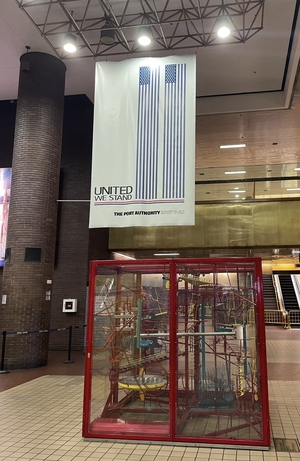DC Insider: What were the perpetrators' goals for 9/11?
Daniel Pipes: It is widely believed that Islamists saw the defeat of the Russians in Afghanistan as key to the subsequent collapse of the Soviet Union and they decided, "Okay, one down, one to go. ... Let's bring down the United States." Obviously, 9/11 did not come anywhere close to achieving that.
DC Insider: What is the key lesson of 9/11?
Pipes: That you can kill thousands of people, cause vast global economic damage, create great political turmoil – and still not achieve your goals. For all the turmoil, from the Islamist – or the jihadist – point of view it achieved almost nothing. Indeed, one could argue that it was counterproductive by bringing global attention to Islamist aggression.
The Islamist movement somewhat learned that violence is not effective. Far better to work through institutions – educational, legal, political, media, and so forth – within the system. For example, take the Southern Poverty Law Center – a major organization once focused on civil rights for Blacks which has now become an Islamist ally.
 Twenty years later, a forlorn "United We Stand" still hangs in the Manhattan's main bus terminal. |
DC Insider: The aftermath of 9/11 led to many sorts of disagreements about who was responsible for the attacks, what led to the attacks, etc. Was it the beginning of the major rift between the Left and Right that we see today?
Pipes: Short-term, 9/11 brought Americans together. "United We Stand" was the slogan and, briefly, the reality. But then, profound disagreements over the causes and implications of the attack became paramount. Conservatives argued that the attacks came from extremists who hate Americans for ideological reasons, while liberals argued that U.S. foreign policy mistakes made the country partially or even fully to blame for what had happened.
This debate in some ways began the huge differences of opinion between Left and Right in the United States that obtain today, with so many issues over which the two sides disagree so profoundly that they cannot find common ground: abortion, guns, transsexuals, and so on. I'm not saying 9/11 caused that fissure but that it definitely contributed to this problem.
 DC Insider: 9/11 inspired countless conspiracy theories. As the author of two books on conspiracy theories, do you find are any of them plausible?
DC Insider: 9/11 inspired countless conspiracy theories. As the author of two books on conspiracy theories, do you find are any of them plausible?
Pipes: Actually, only one significant conspiracy theory exists: that the US government was behind the attacks on 9/11 as a way to justify fighting Islam and attacking Afghanistan. Some European polls found that a third of the population believed this, as did many Muslims. Plausible? No, 9/11 as an insider job is nonsense but important nonsense that has had a political impact.
